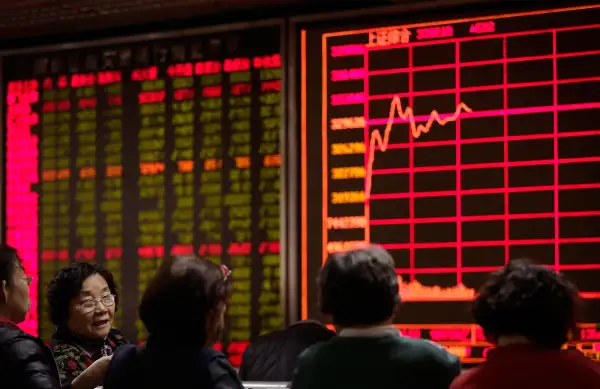Will China’s Slowdown Derail Your Investments?
Money is not a client of any investment adviser featured on this page. The information provided on this page is for educational purposes only and is not intended as investment advice. Money does not offer advisory services.

On paper China’s market shouldn’t hold much sway over your investments.
Chinese shares listed in Hong Kong or on U.S. exchanges account for just 5% of a typical foreign equity fund. But you know better.
Earlier this week, the global markets plunged after China's Shanghai composite index sank by 7% on worse-than-expected economic news. Things got so bad that Chinese regulators temporarily halted trading in that nation's stock market, sending ripples of fears around the world. In the U.S., the Dow Jones industrial average sank as much as 450 points before closing down 276 points on Monday.
The same thing happened last summer. In late August, China’s market crashed, and the echo sent U.S. equities down by double digits too.
Such is the pull of the world’s second-largest economy. Once the key driver of global growth, China’s GDP rate has declined from 9.5% in 2011 to 7.7% in 2013 to 6.8% last year. This year China’s GDP is likely to grow 6.3%, says the International Monetary Fund.
Yet before you panic, keep these three things in mind: First, the decelerating economy, like the boom that preceded it, is being engineered by China’s government. “The goal is to transition China from a fast-growing manufacturing economy to a slower-growing but more stable consumer economy,” says Danton Goei, co-manager of Davis Global.
Currently the portion of GDP generated by consumers is just 35% in China, vs. 65% in the U.S. “There’s a lot of room for China’s consumer economy to grow, but the transition will be tricky,” says Goei.
Even now, China’s economy is likely to outpace most developed nations over the next few years. And the Chinese market looks cheap, with a price/earnings ratio of 10, vs. over 17 for U.S. stocks. “I think we’re reaching maximum hate of China’s markets,” says Eric Moffett, manager of T. Rowe Price Asia Opportunities.
What to do: Even if you think China is a bargain, it’s a risky one to grab.
Better to dedicate a small slice of your portfolio to a diversified emerging-markets play. (Even then, you’ll need patience and a stomach for risk.) T. Rowe Price Emerging Markets Stock (PRMSX) holds more than 21% of its assets in China. That’s in line with the global market and slightly greater than the typical 18% weighting in emerging-market funds.
